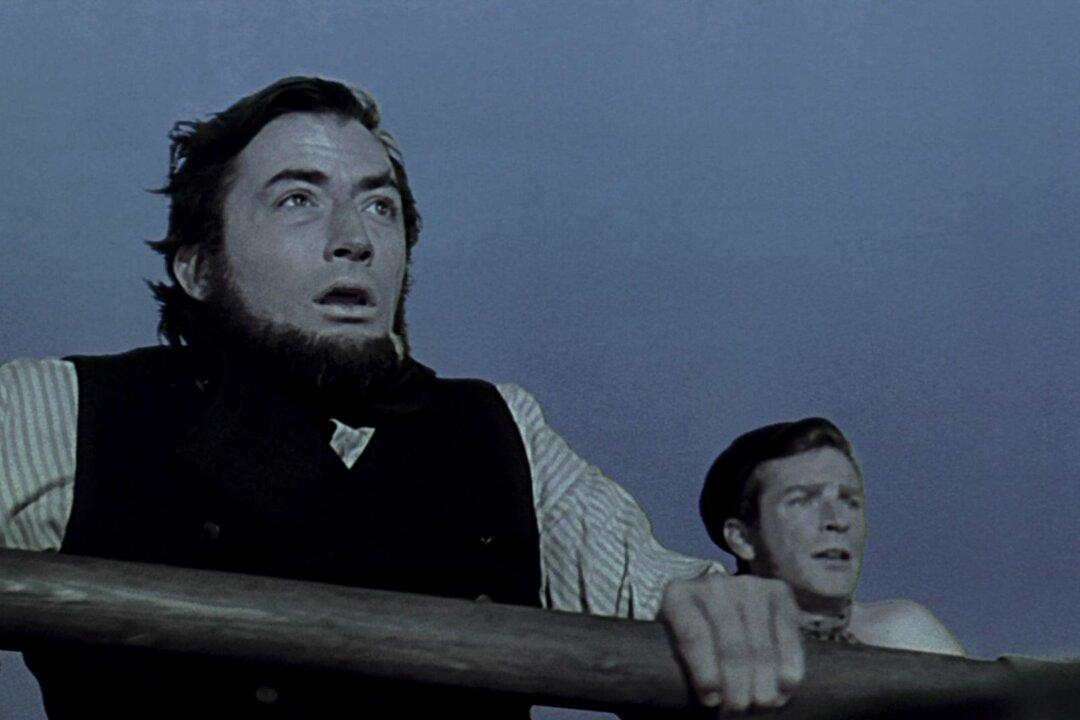NR | 1h 56m | Drama | 1956
Inspired by Herman Melville’s novel, producer-director John Huston is exact with his film’s nautical look and feel, 19th-century set design, costumes, and dialogue. He even mimics Melville’s Miltonic tone.

NR | 1h 56m | Drama | 1956
Inspired by Herman Melville’s novel, producer-director John Huston is exact with his film’s nautical look and feel, 19th-century set design, costumes, and dialogue. He even mimics Melville’s Miltonic tone.